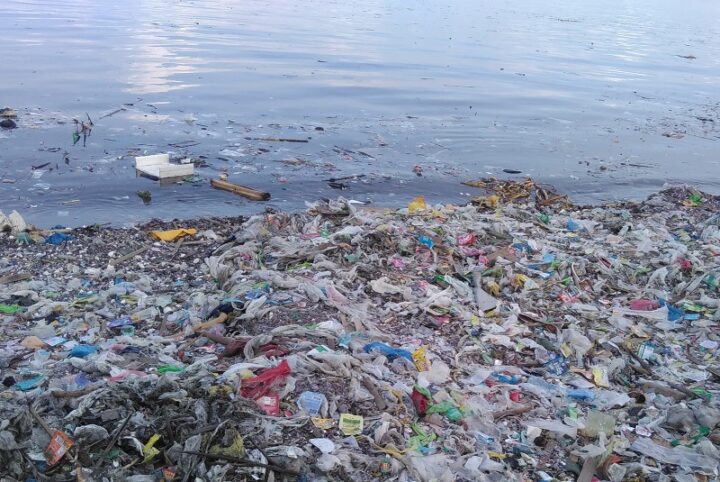Nigeria’s lagoon systems, especially those around Lagos, are increasingly gaining notoriety for being among the most polluted water bodies globally, as unmanaged waste disposal and environmental neglect take their toll.
In coastal cities like Lagos, lagoons once used for fishing, transport, and recreation are now overflowing with solid waste, plastic debris, oil spills, and industrial effluents. These water bodies are no longer safe for human activity or aquatic life, say environmentalists and local community leaders who have called attention to the rapid decline in water quality over the years.

Open dumping of municipal waste has become a chronic problem. Refuse collected from households and businesses is frequently deposited along the lagoon’s edges, especially in communities such as Makoko, Ilaje, and parts of Apapa. With Lagos generating thousands of tonnes of waste daily, the city’s overstretched waste management system often falls short of safely disposing of or recycling waste, leading to direct pollution of nearby water bodies.
Moreover, several companies have been accused of discharging untreated waste directly into the lagoons. Oil residues, chemicals from manufacturing plants, and even medical waste have been reportedly seen floating in parts of the Lagos Lagoon. Experts warn that prolonged exposure to such pollutants not only harms aquatic life but also poses serious health risks to humans, particularly those living along the waterfront.
Fishing communities are among the worst hit. Fishermen in areas like Badagry and Iddo lament declining fish stocks, blaming the pollution for driving fish away or killing them outright. Many of these communities rely on the lagoons for both livelihood and sustenance, and they say the environmental degradation has worsened poverty and food insecurity.
Environmentalists also highlight the alarming presence of microplastics in the water, which not only affect marine organisms but may eventually end up in the food chain, posing a danger to human health. Marine scientists from local universities have carried out studies showing dangerous levels of contamination in sediment samples taken from various points along the lagoon.
Urban development, another major factor, has contributed to the problem. New housing estates, markets, and roads have pushed into what used to be natural wetlands that filtered and controlled water pollution. With drainage systems often blocked or poorly planned, floods regularly wash solid waste and contaminants straight into the lagoon system.
Despite the seriousness of the crisis, government interventions remain inconsistent. While some efforts have been made to regulate waste disposal and clean up certain sections of the lagoon, critics argue that enforcement is weak, and long-term environmental planning is lacking. Occasional clean-up exercises by NGOs and local groups have little impact in the face of daily pollution from millions of people.
The long-term effects of this pollution are not just ecological. Public health is at stake, with residents near polluted areas reporting increased cases of waterborne diseases such as cholera, typhoid, and skin infections. Children who play near or in the lagoon waters are particularly vulnerable.
Experts say a combination of policy, technology, and community involvement is required to reverse the damage. Some have proposed the creation of dedicated lagoon conservation zones, strict fines for industrial polluters, and public awareness campaigns about responsible waste disposal. Investing in waste-to-energy plants and promoting recycling are also seen as potential solutions.
In the absence of urgent reforms, the situation may worsen. As climate change brings heavier rains and rising sea levels, lagoons are likely to become even more overwhelmed by waste and runoff, making recovery more difficult and expensive in the future.
Residents and environmental advocates are urging both state and federal authorities to declare a state of environmental emergency over Nigeria’s water bodies, warning that if the current trend continues, the country may lose not only a key ecological asset but also a critical resource for future generations.
Support InfoStride News' Credible Journalism: Only credible journalism can guarantee a fair, accountable and transparent society, including democracy and government. It involves a lot of efforts and money. We need your support. Click here to Donate
